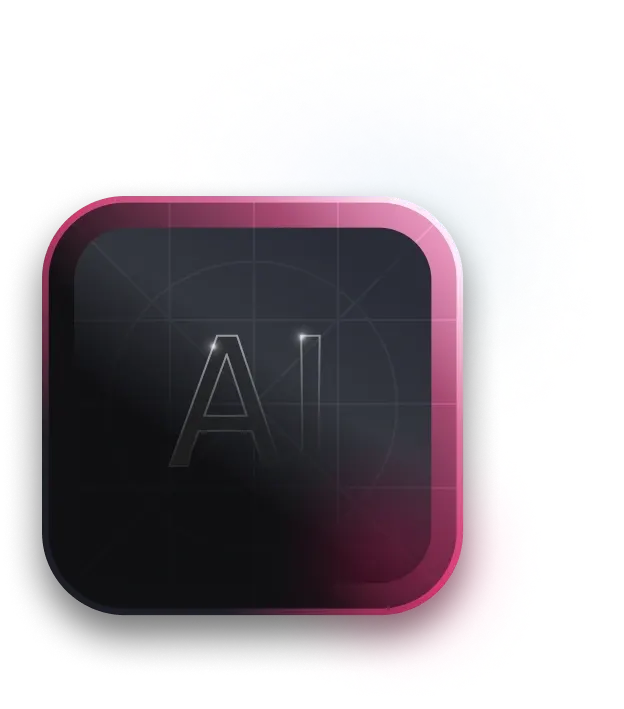The across-the-board digitalization is penetrating an ever-broadening roster of domains and revolutionizing all spheres of our lives. Decision-makers of enterprises, even in the most conservative fields, realize that, without embracing cutting-edge technologies, they are doomed to extinction or at least to a dangerous struggle to keep their nose above the water.
The construction industry is one of the realms where brick and mortar still reign supreme, that is why high-tech innovations are making only tentative steps on a limited scale there. Little by little, construction firms implement ERP systems, harness IoT solutions, or introduce specialized construction apps into their internal workflow.
The most far-sighted CEOs in the sector bank on AI-powered construction software, hoping to boost their pipeline processes and obtain a sharp competitive edge. Among various AI technologies, generative AI is the latest rage that excites universal interest worldwide.
Let's learn what this is all about and how the construction industry can stand to benefit by adopting generative AI solutions.
Generative AI in Construction: Basics and Impact
To realize the potential of the application of generative AI in construction industry, we should start with the basics and understand what generative AI is. This disruptive technology leverages machine learning models and algorithms to create new content. Its tools (generative adversarial networks - GANs, transformers, and variational auto-encoders) are honed to sift through tons of input information (texts, images, audio or video files), identify patterns in them, and produce similar content as an output.
More advanced varieties of generative AI can go beyond observing the real-life environment but utilize mathematical emulation, stress testing, and sensitivity analysis to process unknown trends and patterns exposed in this way.
Learn how Generative AI works
Astute entrepreneurs have quickly fathomed the huge potential of this breakthrough know-how that is expected to affect 300+ million jobs and boost global GDP by 7%. According to forecasts, the construction market as a whole and its various segments are going to steeply increase the usage of generative AI, too.
Generative AI’s Use Cases in Construction
As a company specializing in construction software development, we see the following aspects of building organizations’ pipelines that generative AI can drastically improve.
Design and planning
This is where generative AI finds the readiest application currently. By entering such input parameters as project goals, building codes, and site constraints, architects, engineers, and designers can obtain multiple Building Information Modeling (BIM) prototypes. These virtual models present layout and design options or highlight potential problems in the construction plan at the outset, thus optimizing space utilization, enhancing the functionality of various interior elements, and ruling out costly revisions later in the day.
Project and resource management
Generative AI tools will assess labor, equipment, budget, weather conditions, and other factors to come up with accurate construction project schedules and resource allocation estimates. It will allow organizations to create realistic timelines, align project requirements with resource consumption, identify bottlenecks, cut down on waste, minimize delays, and forestall cost overruns.
Supply chain optimization
Keeping track of supply chain-related texts (such as supplier communications and procurement documents), generative AI reveals inadequacies in the routine before they actually occur as disruptions. Having this data at their fingertips, managers can take proactive steps to adjust procurement strategies, seek alternative suppliers, or fine-tune logistics, thus ensuring a stable inflow of materials to the building site.
Our AI and Data Science Case Studies

Workplace automation
Robotic and autonomous systems are being introduced on construction sites on a large scale, but their efficiency is still subpar. Generative AI models can augment it by analyzing their utilization patterns and tweaking their operation to increase the productivity and speed of automated mechanisms’ functioning.
Real-time monitoring
AI-fueled cameras and sensors can register not only safety-related issues. They can be employed to watch closely the progress of a project and compare it against the original blueprints. If any deviations are spotted, a rectification mechanism is promptly triggered to prevent a violation. Also, cameras can be mounted on drones that inspect a building from time to time. They will register cracks, leaks, and other signs of damage or deterioration to be earmarked for repair.
Building code violations
Software hinged on generative AI can peruse building schemes and blueprints to flag elements that don't meet various standards (like seismic safety norms or energy efficiency regulations). Architects will introduce corrections or adjustments at the early stages of project implementation and escape paying through the nose for rework or fines for exorbitant code violation.
Document summarization
Conventionally, the construction industry relies on a vast amount of documents (contracts, reports, specifications, and more) to see a project through. Processing them manually is a job of work for the personnel at any level. Leveraging generative AI for summarizing them, construction employees will save time and effort spent on more urgent or important tasks, mitigate the risk of overlooking some vital details, minimize error, and promote well-informed decision-making.
Building maintenance
It comes into play when a building has been lived in for some time. Then, the data from its numerous infrastructure systems (electricity, utilities, HVAC, telecom, etc.) will be examined by generative AI to suggest optimal energy usage, curtail operational costs, predict maintenance needs, and generally improve building performance, thus providing its tenants with a higher quality of life. When properly applied, generative AI software can usher in weighty boons.
Benefits of Employing Generative AI in Construction
Requestum has been developing AI solutions for over seven years, so we know well what rewards await construction organizations that make generative AI tools a part of their IT environment.
-
Cost saving. When software acts predictively, you avoid splurging on modifications, transformations, and reworkings that will cost you an arm and a leg at later stages of project delivery.
-
Enhanced safety. Construction site accidents will be minimized, your employees will work without sick leaves, and you will save on big-ticket treatment and rehabilitation expenditures.
-
Risk management. AI can analyze historical data and ongoing project metrics to identify potential risks and suggest mitigation strategies. This proactive approach to risk management can prevent costly delays and accidents.
-
Sustainability and environmental impact. Alignment with green practices and environmental friendliness will become an integral feature of the buildings your firm produces.
-
Data-driven decision making. With AI, decisions in the construction process can be more data-driven, relying on a wealth of analyzed data rather than solely on human expertise and experience.
On the flip side of the coin, construction organizations face some limitations while embracing generative AI.
Let’s create something extraordinary together
Challenges of Integrating Generative AI in Construction
As it happens with any other novel technology, harnessing generative AI across various industries encounters the same risks and obstacles. Let’s take a closer look at them.
-
Data availability and quality. To deliver adequate output, generative AI should receive a huge amount of relevant and accurate data at the input. Otherwise, the results will be substandard.
-
Unexpected outcomes. Generative AI’s mechanisms are still immature and hard to control, which increases the probability of obtaining totally unforeseen outcomes.
-
Integration with existing systems. This is one more challenge related to generative AI's novelty. IT experts working with it should ensure it plays well with other elements of the enterprise's digital infrastructure, and its onboarding is seamless, causing no interruptions in the company's pipeline.
-
Complexity and training needs. Being a recent innovation, generative AI is quite a new technology to handle, requiring special training and non-stock expertise, which many contemporary workforce members lack.
-
Data compromising concerns. One of the priorities of utilizing generative AI should be data privacy and security measures to minimize leakage or penetration instances.
-
Ethical considerations. Generative AI users should take care of its responsible employment, safeguarded against malevolent applications and unintended consequences.
-
Legal framework. Cumbersome and slow changes in legislation often can't keep pace with the new technological advancements that crop up almost every month. That is why regulatory compliance standards and statutory norms regarding the functioning of generative AI in construction still have to be created.
Drawing a Bottomline
The construction industry is a rather conservative sphere. Yet, recent high-tech achievements and growing competitive pressures urge companies in the sector to embrace innovation. One of the most promising technologies capable of revolutionizing the domain is generative AI, which employs ML algorithms to analyze vast masses of data and produce similar content as an output.
Despite existing limitations, generative AI solutions can radically improve a building firm’s performance, curtail expenditures, and sharpen its competitive edge. They can bring maximum value if developed and implemented by seasoned experts in the field.
Requestum team has the necessary qualifications and experience to develop a top-notch generative AI solution that will cover all your professional needs and enable you to take your shop floor processes to a new level, outstripping your competitors. Contact us to usher cutting-edge technology into your pipeline routine.

Our team is dedicated to delivering high-quality services and achieving results that exceed clients' expectations. Let’s discuss how we can help your business succeed.


SHARE: